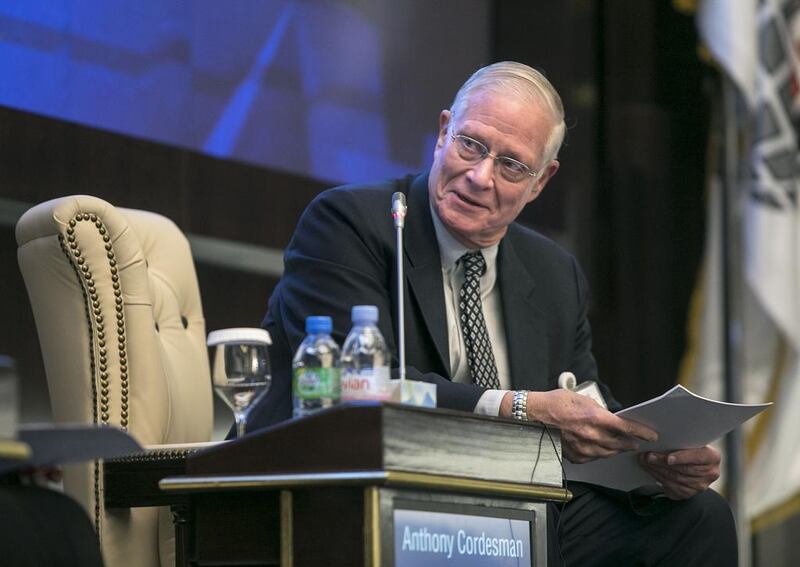ABU DHABI // Arabian Gulf states need to cooperate to ensure the protection of one of the world’s most vulnerable targets – desalination plants.
That’s the view of Anthony Cordesman, an expert at the Centre for Strategic and International Studies, a Washington-based think tank.
“Oil can always be fixed, but if you lose your water supply, there’s no substitute,” he said. “No cooperation is fine if you never have to use the security forces. But it will be extraordinarily painful if you have to.”
Mr Cordesman was speaking on the second and final day of the Emirates Centre for Strategic Studies and Research conference on security in the Arabian Gulf on Tuesday.
He also said a collective Gulf policy was impossible when military capabilities were still not unified.
“You can’t today operate air forces efficiently and cheaply if you don’t integrate them,” said Mr Cordesman, who is the Arleigh A Burke chair in strategy at the centre in Washington.
“They have to be interoperable, standardised and adopt the same tactics. And when each country is buying its own systems, with its own level of training and readiness, when it is buying separate facilities for each country and not coordinating, you create problems that make it extraordinarily difficult for the forces to be effective.”
He said military forces in the Gulf spent much more than Iran, at a ratio of three and a half to one, while Iran spent much more on manpower than equipment.
“Once the UAE completes its current aircraft orders, it would have 1.6 times all the modern fighters in the Iranian air force,” Mr Cordesman said.
“No matter how many toys you buy, if you die with the toys, you do not win and if you don’t want to die, you need readiness and capabilities that are standardised and interoperable.”
Experts at the conference also called for a unified Arabian Gulf policy to deal with Iran.
Dr Ebtesam Alketbi, the chairwoman of the Emirates Policy Centre in Abu Dhabi, said the policy would have to be supported by Arab countries and the Arab League to solve problems between the GCC and Iran and including the GCC in talks on Iran’s nuclear programme.
“The objective is to create an Arab Gulf vision for cooperation in the region,” she said. “Iran is presenting itself as a regional power and it never respected all the bilateral agreements with the GCC, so if a regional cooperation agreement were to be signed between Iran and the GCC, it would make it more attentive to Gulf issues.”
She said countries in the region should adopt this policy if they wished to become an active partner in the Gulf.
“Reasons that were used before, that we have differences between us and the GCC, cannot be used as pretexts not to act together because it will continue to increase our weakness,” she said.
“The environment is ready to adopt an external policy with Iran coordinated with Arab countries.”
The policy would include solving bilateral problems between Iran and the Gulf, such as the three Emirati islands occupied by Iran and the contested regions between Iran and Kuwait. It would also require that both parties stop gathering their military powers.
“The GCC should also be represented in nuclear talks between Iran and the p5+1 and the policy should find a way for the Middle East to become a zone free from nuclear weapons,” said Dr Alketbi.
“It should cease to threaten the security of energy and water passages and Iran would be required to present guarantees to the International Atomic Energy Agency that their nuclear programme will not lead to nuclear weapons.”
She said the policy would have to be binding for the Iranian government and revolutionary institutions.
“The government must give guarantees that they won’t adopt their revolutionary policies towards this region,” Dr Alketbi said.
cmalek@thenational.ae






